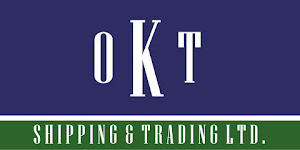Maritime transportation is a strategic sector that constitutes the backbone of global trade. Shipowning within this field is not merely a capital-intensive investment area; it also represents a multi-dimensional management practice that requires decision-making under high uncertainty, managing relationships among multiple stakeholders, and engaging in long-term strategic thinking. Due to the industry’s inherent structural risks and cyclical volatility, the distinction between success and failure in shipowning becomes particularly pronounced.
In this context, successful shipowning is not solely determined by vessel ownership but is directly linked to strategic management capabilities, financial resilience, institutional structure, human capital management, and stakeholder relations.
This paper briefly analyzes the key factors that influence the success levels of shipowners operating in the maritime industry through a comparative framework, evaluating how different organizational models respond to crises, market shifts, and technological transformation.
Comparative Competitiveness Matrix
| Key Domains | High-Performing Shipowners | At-Risk Shipowners |
| Management | Institutionalized, visionary leadership; merit-based team structures | Reactive and superficial management; ambiguity in decision-making |
| Strategy | Long-term, agile, and flexible strategic planning | Short-term profit orientation; misalignment with market changes |
| Fleet Management | Modern, eco-friendly, regulation-compliant fleet | Aging, high-cost, and inefficient fleet structure |
| Financial Structure | Strong balance sheet, effective debt management, solid cash flow | Overleveraging, short-term revenue dependency, financial fragility |
| Customer Relations | Long-term contracts; trust-based partnerships | Contract breaches, trust erosion, limited customer base |
| Human Capital | Skilled and committed personnel; strong safety and maintenance culture | High turnover, corruption risks, lack of training, poor onboard safety |
| Digitalization & Innovation | Integrated tech-based management systems; ESG alignment; continuous improvement | Traditional practices, lack of innovation, weak digital adaptation |
| Crisis Management | Calm analysis, scenario-based planning, and agile response capabilities | Panic-driven, disorganized reactions; lack of vision |
| Stakeholder Relations | Long-term, trust-driven, transparent relationships | Short-termism; behavior that undermines trust |
Structural Patterns Behind Sustainable Success
Current industry trends and recent case studies reveal that the following strategic patterns are characteristic of sustainably successful shipowners:
- Strategic Growth and Integration: Vertical integration across the logistics chain; capacity expansion through mergers and acquisitions
- Fleet Modernization: Investment in energy-efficient, environmentally compliant new vessels
- Financial Discipline: Strong balance sheet governance, risk diversification, minimizing speculative decisions
- Operational Flexibility: Scalable and modular operational structure in response to market volatility
- Corporate Governance: A balance between professional management and family business values
- Innovative Networks: Strategic partnerships with universities, technology providers, and think tanks
- Trust Capital: Long-term business alliances, contractual reliability, and strong industry reputation
Failure Points: Structural Vulnerabilities
Conversely, recurring weaknesses in failing shipowning operations include:
- Lack of Vision: Short-term thinking, resistance to change, neglect of education and professional development
- Financial Fragility: Excessive debt, unsustainable growth strategies, uncontrolled speculative fleet investments
- Reputation Erosion: Contract violations, damaged creditworthiness, and trust breakdowns
- Operational Decline: Aging fleets, neglected maintenance, limited supervision and safety controls
Conclusion
In the maritime industry, competitive advantage is not achieved solely through technical capabilities or fleet size. It emerges from the integrated management of these elements within a strategic, managerial, and financial framework.
Success in shipowning demands multidimensional balance: between financial stability and operational agility, technological adaptability and human capital development, short-term cash flow and long-term reputation management.
In this regard, organizations that can adapt to evolving market conditions, transform crises into strategic opportunities, and build trust-based relationships are significantly more likely to achieve sustainable long-term success.
For the Turkish version of the article, please click here.
To view our other reports and presentations, please click here
OKT Shipping Ltd. is the Türkiye’s leading provider of integrated shipyard & shipping services to complement its core Turkish & Worldwide Shipyards’ Representation business together with Shipbrokerage, Site Team Supervision and Research & Marine Consultancy. In Istanbul – Türkiye, OKT Shipping creates a fertile environment for Worldwide ship owners and shipyards as well as finance institutions, by bringing together connections, know-how and expertise through its services. We are selective and only work with reputable and trustable yards and clients.
More than 30 years’ experience (https://oktshipping.com/about-us/management/) , OKT Shipping and their International partners serve top European, Turkish, American, Canadian and Far Eastern Shipping Companies for their yard selection and other services in Türkiye and Worldwide.
Our team are Naval Architects and ex Shipyard Top Managers has considerable experience in helping businesses to reply all your questions on docking & repairs in Türkiye and globally. We review and reply your questions for the sake of better understanding of our yards and working habits to achieve better results. Our represented shipyards list is constantly updated through common yard pool covering all European agent/broker partners, according to the benefits the yard can provide to Shipowners, the yards’ success and actual latest performance. If necessary, some shipyards removed from the list and being traced separate for a while only. Therefore, please contact us for our latest list when you have any serious enquiry and not to refer our earlier list.
As OKT Shipping Ltd., we also offer consultancy services for both new builds, secondhand ship acquisitions and we are also we are committed to providing optimal solutions for your large-scale special conversion projects. Furthermore, we are delighted to announce our ability to facilitate the establishment of EU ETS company accounts and oversee their management.
To learn more our activities in Türkiye & Worldwide and about this report, please contact:
Best Regards,
Osman Kaya TURAN
Managing Director, OKT Shipping & Trading Ltd.
